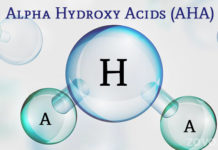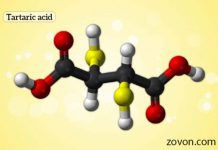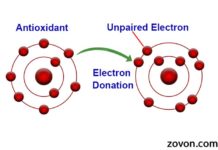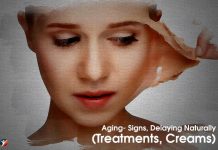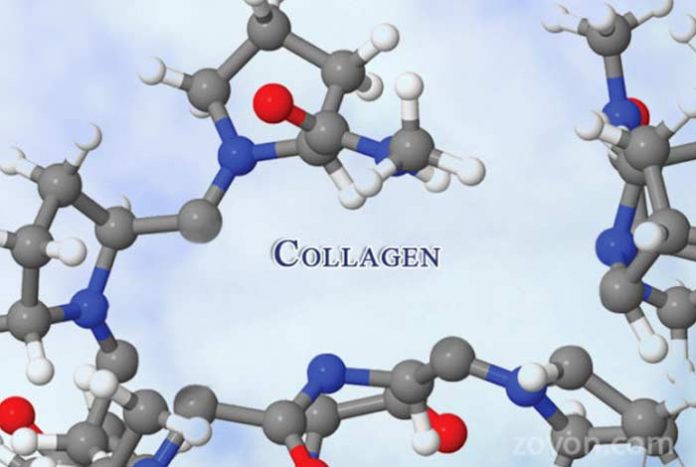
Our body comprises thousands of proteins that come together to give the body its structure and maintain its functions. There are numerous amino acids and proteins that manage the functions of our body. One of these proteins is Collagen. It is a naturally occurring, fundamental, structural protein found in the extracellular space (the space outside the cell membrane) of various connective tissues.
A mammalian body has high amount of collagen, contributing to around 25%-35% of the whole body protein. Collagen is found in various parts of the body, including cartilage, bones, alimentary canal, corneas, blood vessels, muscles and teeth. All the connective tissues are made up of protein. Being the structural components of the musculoskeletal system, tendons and ligaments join muscles to bones and bones to muscles, respectively. The major protein that is responsible for the formation of these two is Collagen.
Our body produces collagen itself but when the levels of collagen start depleting in the body due to aging or other factors we have to consume collagen supplements that is synthesized in laboratories. It is usually extracted from pigs and marine animals.
Structure and Formation of Collagen
Collagen structure consists of three polypeptide strands called alpha chains and forms a left-handed helix. It also consists of another alpha chain forming a right-handed helix. The three polypeptide strands consist of amino acids like Glycine, Proline, Hydroxyproline and Arginine. These amino acids are arranged in a regular structure and form the polypeptide chains that later form the Collagen.
When these helixes come together and interwind, They form a triple helix or it can also be referred as ‘Super Helix’. The final structure of Collagen is however balanced by these superhelixes and hydrogen bonds. This arrangement makes collagen structure very strong and makes it a fibrous protein.
Bones and Collagens
Bones and Collagens are closely related to each other. The structure of the human body is defined by the skeletal structure of the body and the bones are functions are controlled by muscles. However, Bones and Muscles are interconnected in our body with the help of Ligaments and Tendons.
Bones basically comprises of proteins and minerals. 60% of the bone mass is formed by minerals such as Calcium and Phosphate. The rest 40% consists of the bone matrix and water. Collagen is a strong protein and helps in the formations of the bone matrix too. Bone matrix is formed by inorganic salts like hydroxyapatite and calcium carbonate and it also consists of collagen fibers.
Hydrolysed Collagen and Gelatin
Collagen is available in two forms i.e. Powder and hydrolyzed. Both powder and hydrolyzed form do the same job but are different in molecular masses. Powdered Collagen has heavy molecular mass which makes it quite insoluble in water. Hydrolysed collagen is formed when the bonds between the regular collagen and peptides break. The chemical bonds between the collagen strands and peptides are separated by the combination of physical and chemical means.
Gelatin, however, is the cooked form of collagen that makes amino acids more consumable. To be precise, hydrolyzed collagen is also a form of collagen gelatin with highly separated particles of amino acids and that makes it easy to consume and more beneficial than the powdered collagen or gelatine.
However, the amount of Collagen gradually decreases in our body with time because of aging factor but there are some other factors too that affect the levels of Collagen in our body and result in depleted collagen level. Factors like high sugar consumption, smoking and sunlight affect the collagen level in our body. Exposure to heavy sunlight results in depletion of collagen from bones and ligaments while high sugar consumption and smoking aren’t good for bone health either.
Fitness & Collagen Supplements
Collagen is widely used in the health and skincare industry. However, it is a naturally occurring protein in the human body but when it starts depleting from our body because of aging or other natural factors we need to use collagen supplements and cosmetics for the care of our bones and skin.
After a certain age, our joints get weak and we start feeling pain in our joints while standing up or while sitting. Collagen Pills are also used by senior citizens who suffer from joint pain. Collagen Pills are available in various concentrations and should always be consumed in a limited amount. However, the use of Collagen Pills should always be done under the guidance of a professional orthopaedist to avoid side effects and problems.
It also promotes the growth of creatine and can be useful while gaining lean muscle.
Collagen as Skincare Cosmetic
Collagen is widely used in the skin care industry because of its anti-aging capabilities. Collagen is one of the most important skin care cosmetics. It is responsible for the elasticity and the moisture of the skin. Collagen is used as an anti-aging cosmetic to get rid of fine lines and wrinkles.
Collagen helps in the revitalization of the skin. Use of collagen powders and cosmetics increases the amount of collagen in the body and helps in preserving and maintaining the skin moisture and revitalize the skin.
Collagen wound dressing helps in the healing of the scars.
Collagen has amazing uses that are helping people to improve their health and live a better and healthy life. But excess use of Collagen can result in certain side-effects.
Side Effects of Collagen and Preventions
-
Bad taste in mouth
In spite of being tasteless and odorless collagen sometimes result in leaving a bad taste in your mouth. Collagen Supplements that are synthesized from marine species usually results in leaving the bad taste but consuming collagen with flavored juices like Orange or Pineapple can help in avoiding this side effect.
-
High calcium level
The normal Calcium level of human plasma is 8.5-10.2mg/Dl, but excessive consumption of collagen increases the calcium rate and it reaches more than 10.2mg/Dl. This increase in amount of calcium in blood results in pain in bones, cardiac problems, fatigue, nausea and vomiting. Avoiding the consumption of calcium-rich diet during collagen supplement use can help in getting rid of this problem.
Products
- Various brands make collagen powdered supplements that are easily consumable by mixing them with your diets such as breakfast cereals or oats. Some of the famous Collagen Supplement brands are Doctor’s Choice, Pure Marine, YouTheory, Neocell, VitaDirect and HealthKart.
- HealthKart, Nutricell, Ambiway and Nutralite are some of the well-known brands that make Collagen Pills.
- Clinique and Monda€ make Collagen Cosmetics. Clinique makes Collagen Creams and Monda€ makes face packs containing Collagen.
FAQs: What people normally want to know about Collagen?
1. What does collagen taste like?
Collagen is tasteless and odorless and has no color or flavor but if you feel some flavor you can try mixing it with coffee milk or your morning breakfast.
2. How to consume Collagen?
Collagen can be consumed in Tea, In water(you can add lemon too), Smoothies & Juices or mixed with your soup.
3. What amount should be consumed?
An average amount of 5g Collagen is enough for a day but if you are suffering from Joints problem you can consume up to 10g of collagen every day.
4. What is the ideal time to consume collagen?
Collagen should be consumed before getting to bed as the body is at rest and collagen works faster and helps in quick regeneration of muscles and skin tissues.
5. Are there any side-effects of using collagen?
On a basic level, Collagen has no side effects but long-term or excessive use can cause problems like the bone ache and cardiac problems.
6. I read in your article that collagen is extracted from marine animals. I’m allergic to fish, can I still consume Collagen?
You should not consume it because most of the commercial collagen is extracted from marine animals and if you have any kind of allergy to fish, you should avoid the consumption.
7. When can I observe the results of Collagen consumption?
It usually takes about 3-4 weeks to observe changes if you consume an average amount of 5-10gm of collagen every day.

